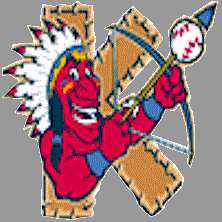Thank you for your comments. It is the negative emotions that stem from the confusion of words and those same negative extensions from our own Indigenous people. We at RSM have research and found educated material that is not promoted by the colonial education and media system our people have been taught by. I welcome you to 'read' the information on our web site and also encourage you to 'fight' against the proper racist system.
I realize how easy it is to let anger and emotion gain control of our people; we have the same problems in my community of Six Nations in Ontario Canada. We are fighting for our life and our land at the moment and are forced to deal with racist faces and voices in the media and the education system. I find it hard not to be angry, but my traditional culture teaches to practice 'the good mind' - to change that which angers
us into positive change.
I hope all is well and that we all can find hope and pride in our future as a united indigenous global family. It is hard to fight against what you have been taught and believed in, just know that no matter how angry and upsetting the world or people seem: We are family and that’s what binds us together.
If you are still upset, then please feel free to write an article for submission publication. (1400 - 1600 words .doc format)
Thank you once again.
Jody Martin Mathew Hill
Tuscarora Nation - Turtle Clan
Six Nations of the Grand River
Owner and Operator - Redskin Magazine
Pictured below: a couple of typical "redskins."



Writerfella here --
ReplyDeleteOf course writerfella now has a stake in the existence of the magazine and so is not in his usual apolitical 'alien point of view' stance on such matters. BUT --
The word 'redskin' is as old as the visit from European explorers in 1492. The Tainos and Caribes and other island-dwelling tribes painted themselves with reddish ochre compounds to protect their skin from sunburn and insects. These mud paints were applied new and fresh daily and thus the word 'redskin' perfectly was appropriate because that's what Colombo's party saw when they contacted the Natives in the Caribbean. AND THEN the word used was in Spanish! Only after it was translated into English AND European invaders were arriving to colonize North America AND came into conflict with the Natives they encountered, did the word become imbued with pejorative meanings.
writerfella reminds that George Santayana sagely said, "Those who cannot learn from history are doomed to repeat it."
All Best
Russ Bates
'writerfella'
Actually, there are several theories on the origin of the word "redskin." No one has proved one theory true and the others false. Read all about it at Red·skin n. Dated, Offensive, Taboo.
ReplyDeleteWriterfella here --
ReplyDeleteSorry, Rob, but you are reading your own press. Tsk, tsk...
All Best
Russ Bates
'writerfella'
Writerfella here --
ReplyDeletePOSTSCRIPTUM: And besides, the word you tried to find was "proven"... Missed it by THAT much!
All Best
Russ Bates
'writerfella'
Actually, I quoted several sources on the page I mentioned. Which you'd know if you could and would read it.
ReplyDeleteMy use of "proved" is correct, thank you very much. Learn about what's acceptable in English:
http://www.bartleby.com/64/C003/0247.html
The verb prove has two past participles: proved and proven. Proved is the older form. Proven is a variant. ... In the 20th century proven has made inroads into the territory once dominated by proved, so that now the two forms compete on equal footing as participles.
As for your English, the correct pronoun for the noun "party" is "it," not "they." Oops.
ReplyDeleteThe day you know standard English better than I do will be a red-letter day for you, Russ. Let's hope you live long enough to experience that wonder.
Writerfella here --
ReplyDeleteSince Colombo's party consisted of three shiploads, one of which represented King Ferdinand's interests, the correct word is 'they.' Those who do not know history are doomed to doubt it...
All Best
Russ Bates
'writerfella'
All parties consist of multiple persons or items. Nevertheless, the correct pronoun for "party" is "it."
ReplyDelete